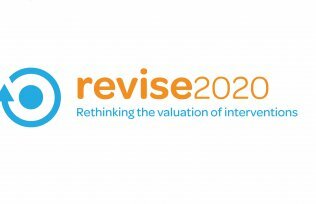copyright (c) 2011 NICHE
Site by websculptures
Sitemap
REVISE 2020 - REthinking the Valuation of Interventions to improve priority SEtting
REVISE 2020 is a research program that rethinks the theory and tools to value interventions for priority setting in health care.
Our mission:
We want to make a difference in the way priorities are set in low and middle income countries, and in the Netherlands. By 2020, we will have developed, implemented and evaluated the use of evidence-informed deliberative processes in these contexts, and have made tools available for wider implementation.
Our vision:
Priority setting in health care has traditionally been oriented towards the maximisation of health, with cost-effectiveness as a dominant criterion. However, this does not sufficiently support decision makers to make optimal choices. The reason is that priority setting is in reality a value-laden political process in which multiple criteria beyond cost-effectiveness are important, and stakeholders often justifiably disagree about the relative importance of these criteria.
In the REVISE 2020 project, we explicitly recognise priority setting as a political process and an intrinsically complex task, and develop the use of ‘evidence-informed deliberative processes’. In these processes, deliberation between stakeholders is crucial to identify, reflect and learn about the meaning and importance of values, informed by evidence on these values/criteria. We want to develop, implement and evaluate these processes in a number of decision contexts. In addition, we organise consensus and dissemination meetings to further develop our tools and influence current practices on priority setting.
Our activities include the development of a generic framework, and its application in a number of decision contexts:
1. Development of theory and tools for priority setting (2016-2020)
This work includes the development of theory and tools for priority setting, explicitly reflecting priority setting as a value-based political process. We see evidence-informed deliberative processes as an overarching framework and develop practical guidance on this. Also, we develop integrated evidence on the forthcoming values/criteria, with an important focus on the integration of health systems constraints in cost-effectiveness analysis.
Related publications:
Baltussen R et al. Priority setting for universal health coverage: We need evidence-informed deliberative processes, not just more evidence on cost-effectiveness. IJHPM 2016
http://www.ijhpm.com/article_3231_0.html
Jansen M et al. Fair processes in HTA - putting theory in practice. IJHPM 2016
http://ijhpm.com/article_3237_0.html
2. Supporting priority setting to achieve universal coverage (2015-2020)
This work includes the application of the theory of evidence-informed deliberative processes to the strive for universal coverage, and the identification of core and contextual criteria.
Related publications:
Baltussen R et al. Priority setting for universal health coverage: We need evidence-informed deliberative processes, not just more evidence on cost-effectiveness. IJHPM 2016
http://www.ijhpm.com/article_3231_0.html
Norheim O, Baltussen R et al. Guidance on priority setting in health care (GPS-Health): the inclusion of equity criteria not captured by cost-effectiveness analysis. Cost-effectiveness and Resource Allocation 2013 https://resource-allocation.biomedcentral.com/articles/10.1186/1478-7547-12-18
3. Supporting priority setting in HIV control in low and middle income countries (2013-2018)
This work includes the implementation and rigorous evaluation evidence-informed deliberative processes in various districts in Indonesia. Also, it includes the development of a better evidence base for making decisions by integration of relevant criteria, and an application of this in HIV control in Ghana.
Related publications:
Tromp N et al. Time to recognise countries' preferences in HIV control. Lancet 2016
Baltussen et al. Balancing efficiency, equity and feasibility of HIV treatment in South Africa – development of programmatic guidance. Cost-Effectiveness and Resource Allocation 2013
http://resource-allocation.biomedcentral.com/articles/10.1186/1478-7547-11-26
Tromp et al. Importance of multiple criteria for priority setting of HIV/AIDS interventions. Int J Technol Assess Health Care 2015
http://www.ncbi.nlm.nih.gov/pubmed/26961721
Tromp et al. Priority setting in HIV/AIDS control in West Java Indonesia: an evaluation based on the accountability for reasonableness framework. Health Policy and Planning 2015
http://www.ncbi.nlm.nih.gov/pubmed/24740708
Jansen MP et al. PrEP: why we are waiting. Lancet HIV 2016
4. Supporting health technology assessment in the Netherlands (2015-2020)
We aim to improve the early evaluation of new technologies, the present reimbursement process of expensive drugs, and the evaluation of existing technologies – all through the application of the principles of evidence-informed deliberative processes. We anticipate that this will result in the development and application of these processes involving all relevant stakeholders on specific priority setting decisions. In addition, we will organise a citizen panel to stimulate the public debate on reimbursement decisions and eventually improve their legitimacy.
We organise consensus and dissemination meetings on the above areas of research.
REVISE 2020 is supported by a VICI grant from the Netherlands Organisation for Scientific Research (NWO)
